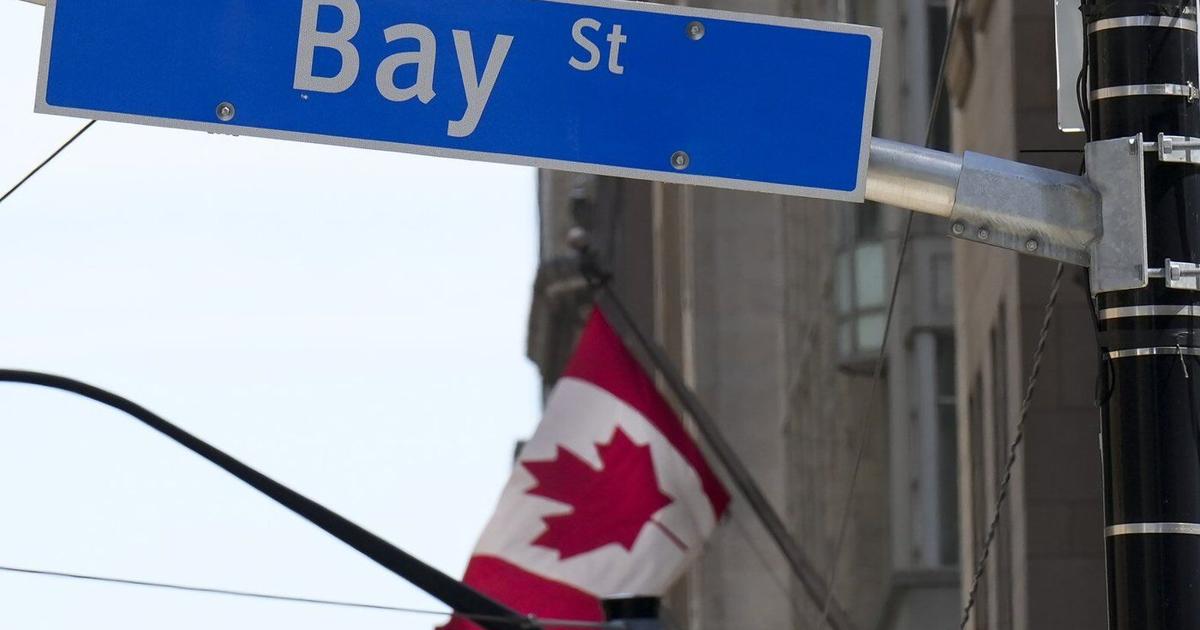Under the weight of damaging trade wars with the United States and China, Prime Minister Mark Carney unveiled a major new package of supports for tariff-stricken businesses on Friday — one that delayed or changed major climate policies from the previous Liberal government, as the new administration stresses “competitiveness” in a radically changing global economy.
Appearing before a partially built Dash-8 plane at an aerospace factory in Mississauga, Carney touted a host of new measures that he said were meant to help fortify the Canadian economy in a new era of “economic nationalism.”
The prime minister, fresh off a two-day cabinet retreat in Toronto, said his government was “meeting this moment with the most comprehensive suite of trade resilient measures in Canadian history.”
“Our new government is embarking on an ambitious plan to secure a new era of prosperity out of this age of adversity. Our new industrial strategy will help transform our economy from being overly reliant on the United States, to one that is more resilient to global shocks,” he said at a news conference, with members of his front bench lined up behind him.
Among the moves was a re-skilling package to train up to 50,000 more workers, expand and improve access to Employment Insurance and set up an online platform to link Canadians to private-sector jobs. Also announced was the creation of a $5-billion fund for sectors hit hard by trade turmoil, such as Ontario’s auto sector, to help them retool factories or expand and find customers in new markets. The government is also rewriting its own procurement policy, Carney said, making it a “clear obligation” for Ottawa to “buy Canadian” in all its contracts — including for infrastructure spending — and ensure Canadian materials are used when domestic companies “truly” aren’t available.
On top of that, Ottawa will increase government agency loans to small- and medium-sized businesses, as well as canola producers hit by Chinese tariffs, with lower interest rates to help through economic pain that saw Canada’s economy shrink in the second quarter of this year, and the unemployment rate reach 7.1 per cent according to figures published Friday.
At the same time, Carney announced he would ditch an incoming mandate that would have required 20 per cent of new vehicles sold in 2026 to be emissions-free. The Justin Trudeau-era policy, which would have eventually ensured that zero-emission vehicles make up 100 per cent of new car sales by 2035, had been under fire from automakers and industry groups already hobbled by 25 per cent import duties into the U.S.
Carney promised to kick start a 60-day review of the policy, and look at possible changes to annual sales goals, including the 2035 target.
“It’s an important indication that the government is listening to the industry. It’s a clear indication that everybody recognizes that the math is bad for Canadian manufacturing and it was biased towards imports. We need to work together on renewing policies that deal equally with the demand and supply side for the best outcome for Canadian jobs,” Flavio Volpe, head of the Automotive Parts Manufacturers’ Association, said in a written statement.
The government is also making changes to its clean fuel standards, which Carney said are meant to help domestic biofuels manufacturers.
Environment Minister Julie Dabrusin said the changes to clean fuel are “targeted” to promote domestic biofuels given China’s steep retaliatory tariffs on canola in response to Canada’s import duties on Chinese electric vehicles. Dabrusin said the overall regulation isn’t meant to be weakened by the changes.
“It’s to promote the domestic industry. It’s not about stringency,” she told the Star.
Climate change advocates, meanwhile, say policies like EV mandates are key to Canada achieving its climate goals and could help automotive manufacturers transition into increased EV production.
“What was the point of electing Mark Carney when we get Pierre Poilievre’s climate policy? We should be aligning with Europe, which is doubling down on renewable energy and electric vehicles, rather than bowing before (U.S. President Donald) Trump’s attack on people and planet,” Keith Stewart, an energy strategist with Greenpeace Canada, said in a written statement.
Joanna Kyriazis, a policy director with Clean Energy Canada, told the Star that any review of the EV mandate should not be about abolishing it but rather how it can be “retooled” to meet the needs of Canadians.
Those needs revolve around affordability, Kyriazis said, citing research that has shown the policy could slash the cost of an electric vehicle by as much as $20,000.
“This policy is one of the key tools that we have to cut carbon pollution in Canada,” Kyriazis added, noting that transportation is Canada’s second biggest source of greenhouse gas emissions.
“Especially after the consumer carbon price was repealed, this policy is going to do a lot more heavy lifting,” she said.
Conservative Leader Pierre Poilievre has targeted the EV standards and clean fuel regulations following his crusade against the now-scrapped consumer carbon price.
Error! Sorry, there was an error processing your request.
There was a problem with the recaptcha. Please try again.
You may unsubscribe at any time. By signing up, you agree to our terms of use and privacy policy. This site is protected by reCAPTCHA and the Google privacy policy and terms of service apply.
Want more of the latest from us? Sign up for more at our newsletter page.



